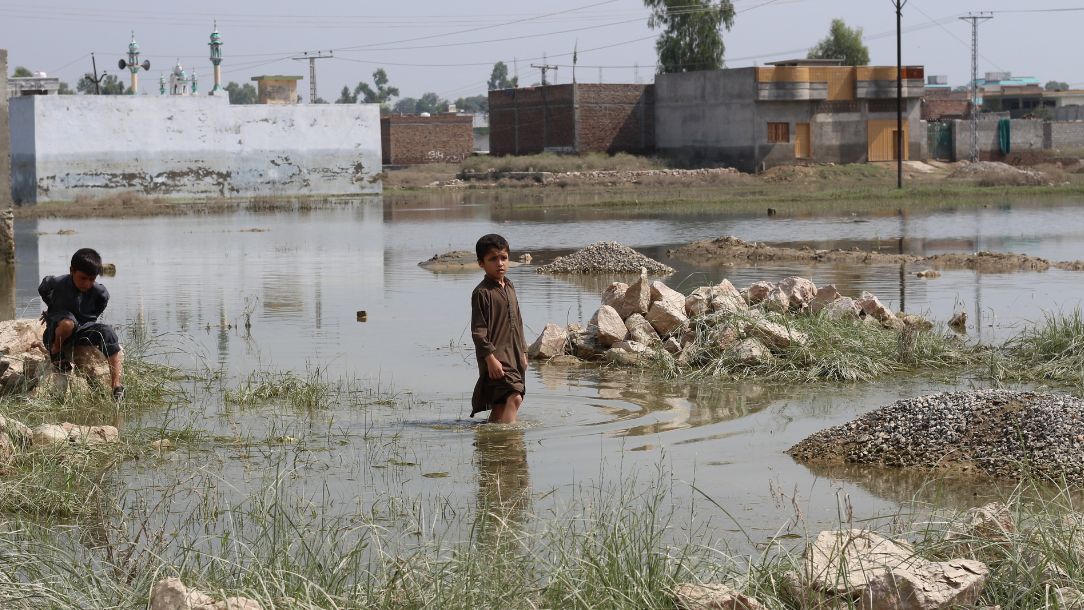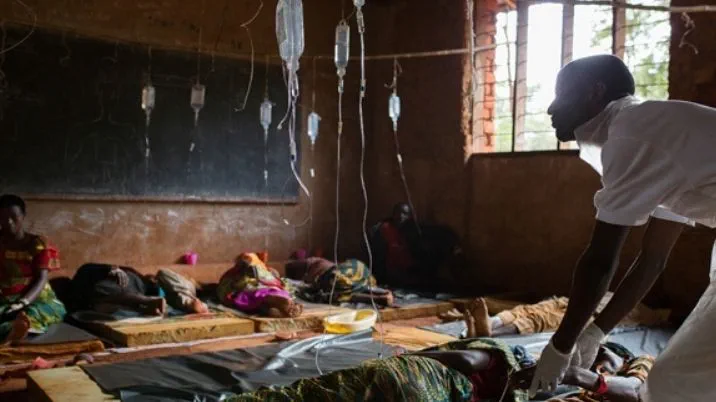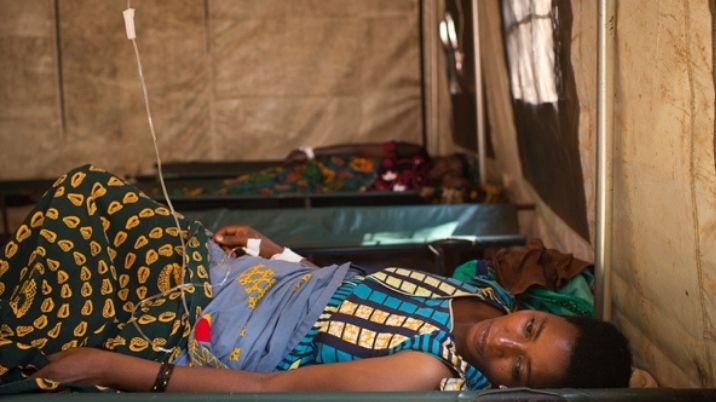Why waterborne diseases are a threat after the Pakistan floods
After the devastating floods in Pakistan, health officials are reporting a sharp rise in waterborne diseases. British Red Cross health adviser Greg Rose explains why waterborne diseases are now a health emergency in Pakistan.

Last updated 21 September
As people are forced to drink stagnant, contaminated water after the Pakistan floods, waterborne diseases are taking significant hold. Since July, more than 660,120 people have reported acute, watery diarrhoea, skin infections, typhoid, malaria, dengue fever and snake bites. Without urgent medical support, these diseases can become fatal, very quickly.
Babies and young children are particularly affected by these diseases and the situation is becoming desperate.
Red Cross teams are on the ground providing life-saving aid either directly, or through local partners. But they urgently need funds to reach more people.
Please donate to the Pakistan Floods Appeal if you can.
What are waterborne diseases?
Waterborne diseases, such as cholera, typhoid, dysentery and hepatitis A, are caused by microscopic organisms like viruses and bacteria. These organisms can be introduced to the body through contaminated water, or by coming into contact with faeces containing the virus.
Unsafe water and poor sanitation can all increase the spread of waterborne diseases. Without proper medical support, these diseases can cause severe illness and possibly death.

Cholera and other waterborne diseases can be treated by replacing fluids.
Are waterborne diseases affecting people in Pakistan?
Waterborne diseases are increasing at a faster pace among displaced people in flood-hit areas.
Health officials in Pakistan have been reporting a rise in diarrhoea, skin diseases and eye infections. Over 90,000 cases of diarrhoea were reported in Sindh in one day, as well as in other heavily affected areas.
The UN children's agency said more than 3 million children stood at heightened risk of diseases, and are in desperate need of clean water and safer living environments.
Why are Pakistan flood victims at increased risk from waterborne disease?
After humanitarian emergencies, such as floods, infrastructure is often destroyed. There's a lack of proper toilets for people living in shelters, public buildings or emergency camps on higher ground. And there's also a lack of handwashing facilities.
This means that diseases like dysentery and cholera can spread very rapidly in overcrowded places.
In terms of fresh drinking water, stored water is frequently contaminated as it is rarely chlorinated and in contact with hands and contaminated cups. In addition, wells could also be contaminated by water from flooded toilets or toilet blocks.
All these factors make the spread of waterborne disease in Pakistan a high and increasing risk.
Is the Red Cross and Red Crescent Movement treating waterborne disease in Pakistan?
Waterborne diseases can be easily treated with oral rehydration salts and IV drips if needed.
However, with so many health facilities affected by the floods, millions of people lack access to healthcare and treatment they desperately need. The World Health Organisation (WHO) recently reported that 888 healthcare facilities have been damaged in the Pakistan floods, and 88 completely destroyed.
The Pakistan Red Crescent has mobile health facilities in several affected areas, and are working hard to treat flood victims with waterborne diseases.
Along with agencies such as WHO, the Red Cross and Red Crescent Movement is keeping surveillance for waterborne diseases such as acute diarrhoea, and cholera, and providing medical supplies where needed.
Better understand the threat a cholera outbreak poses to the people of Pakistan, by learning about the deadly disease and why it is so common after a natural disaster or conflict.

A woman is treated for waterborne diseases through an IV drip.
Could a lack of clean water cause any other problems?
A lack of clean water could affect women in particular. It can be harder to deal with menstruation, especially away from home and without privacy. There's also a potential safety risk for women going to the toilet after nightfall.
Pregnant and breastfeeding women are also at great risk without clean water. Women about to give birth also need clean birth facilities as well as healthcare staff. As many healthcare facilities were destroyed in the floods, the lives of mothers and newborns are now at risk.
The Pakistan Red Crescent is supporting vulnerable communities such as children and pregnant and breastfeeding women.
Help us provide clean water to those affected
- £20 could help to provide a hygiene kit containing toothbrushes, soap and toilet paper to one family.
- £40 could help to provide ten families with a jerry can so they can store clean water for drinking and cooking.
- £65 could help to provide one household with financial support so they can meet their basic needs like buying food and clean drinking water.
Please donate to the Pakistan Floods Appeal
More information on the Pakistan floods crisis
Pakistan Floods Appeal
Over 500 staff at the Pakistan Red Crescent are providing essential support, with help from a roster of over 3,000 volunteers. Your gift will help teams to reach people in the most affected areas.
DONATE NOW